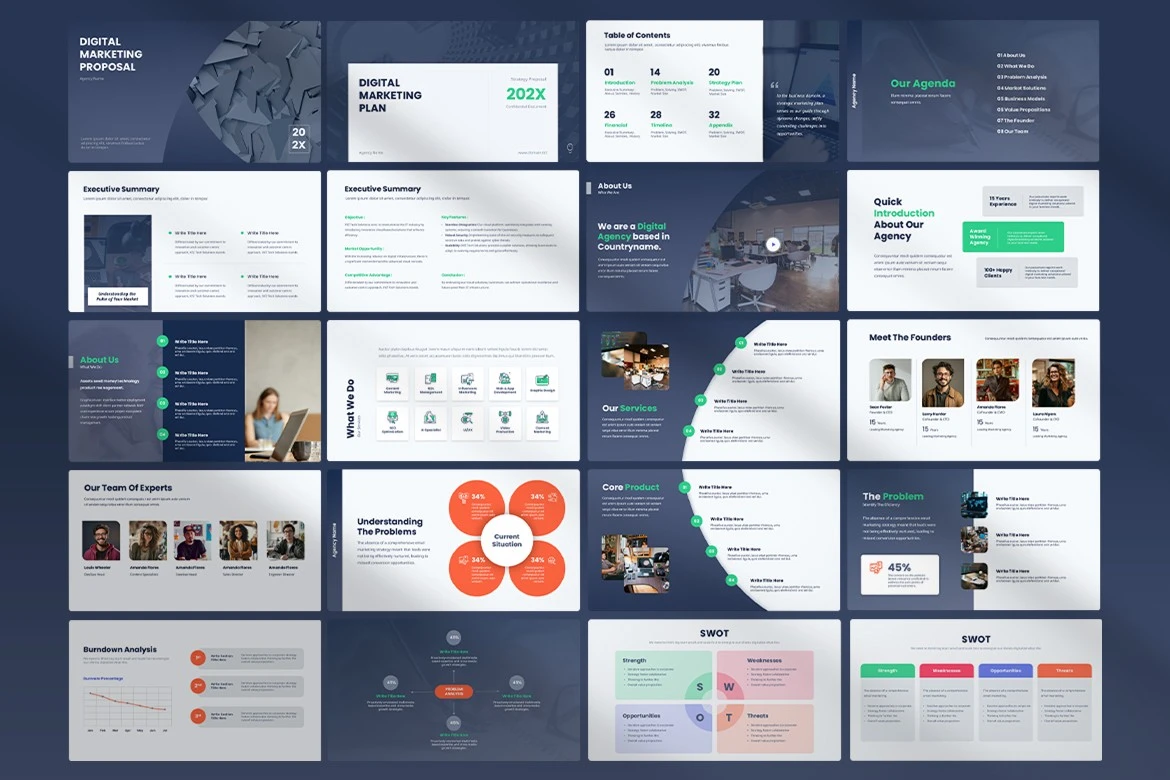Table of Contents
Need to create a digital marketing plan proposal? You don’t have to overthink it. What matters is that your proposal is clear, easy to follow, and makes sense to the people reading it. Here are a few simple tips that might help.
1. Who’s going to read your proposal?
Start by thinking about your audience. Is it for a client, your team, or upper management? Knowing this helps you decide the tone, the level of detail, and what to focus on.
Also Read : How to Make a Social Media Report with PowerPoint
2. Be clear about your goal
Don’t jump into tactics right away. First, define what you want to achieve—whether it’s brand awareness, lead generation, or boosting conversions. This will guide everything else you include.
3. Use data to back it up
Don’t just share ideas—show proof. Use past results, market trends, or competitor data to give your plan more weight and credibility.
4. Make it visually clear
If you're using slides, keep it clean and not too text-heavy. Add charts, visuals, or mockups to help explain your ideas without overwhelming the viewer.
5. End with a clear call to action
Wrap up your proposal with a short summary and the next step. Don’t leave your audience wondering what to do after reading it.
Don't Waste Your Time Thinking The Visual Layout.
Download our ready to use template:
If you want to save time and still look professional, try this ready-to-use digital marketing plan template. It's clean, well-structured, and easy to customize:







